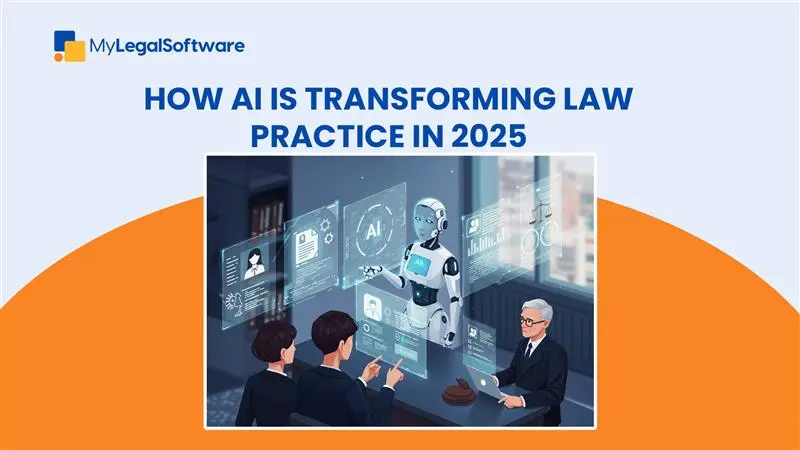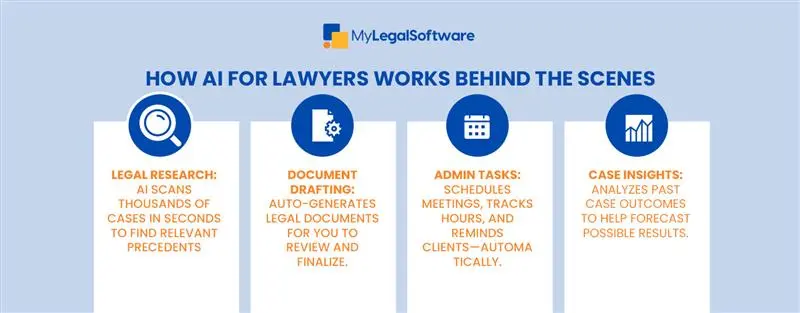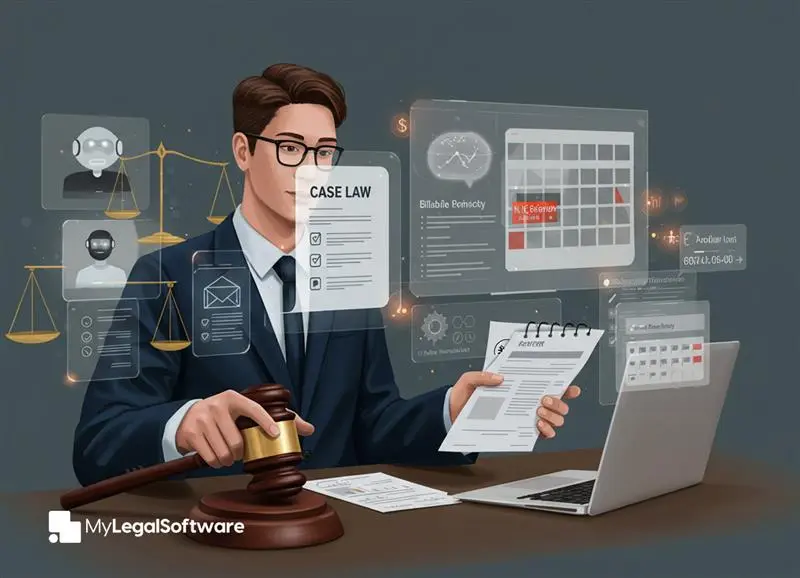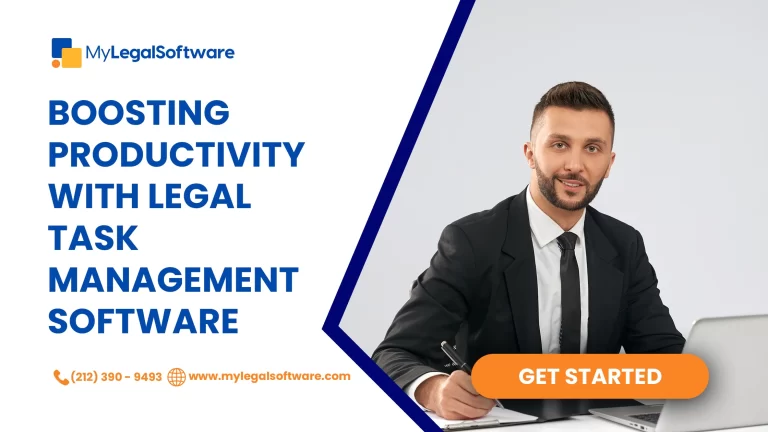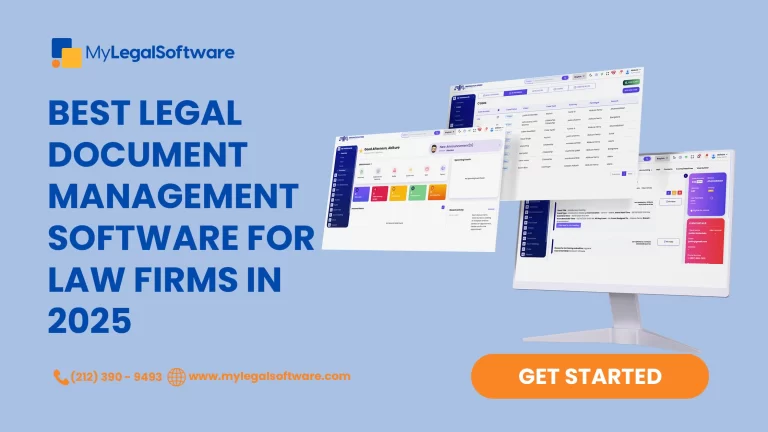Legal software and AI for lawyers are reshaping the legal world—and that’s a good thing. Gone are the days of endless paperwork and hours spent digging through case files. In 2025, legal professionals are working smarter than ever before.
Whether you’re a seasoned attorney, a paralegal, or simply curious about AI, this FAQ-style guide will walk you through what’s changing—and why it matters.
Q: What exactly is AI in the legal world?
AI (short for Artificial Intelligence) is software that can think, learn, and make decisions—just like humans, only faster. In the legal world, it helps with tasks like document review, legal research, billing, and case analysis.
So no, it’s not about replacing lawyers. It’s about freeing them up from the boring stuff.
Q: How is AI for lawyers actually being used in 2025?
In 2025, AI for lawyers is doing a lot of the heavy lifting behind the scenes. Here’s what it’s helping with:
- Document review: AI scans contracts and highlights key clauses in seconds.
- Legal research: Instead of reading through hundreds of cases, AI pulls out the most relevant ones instantly.
- Drafting assistance: AI tools can generate first drafts of legal documents. You just polish them up.
- Client communication: AI chatbots handle common client questions 24/7.
- Case predictions: Some legal softwares even predict outcomes based on past cases.
In short, AI works like a super-powered legal assistant—one that neither sleeps, falls sick, nor needs time off to recuperate.
Q: But is AI accurate enough to trust?
We get it—accuracy matters in law. The good news? Yes, AI tools in 2025 are more accurate than ever. Thanks to massive data sets and better machine learning models, AI can spot patterns that even experienced humans might miss.
Of course, it’s still not perfect. Think of AI as your fast-thinking teammate or sidekick. In other words, you’re still the boss who makes the final call.
Q: Will AI replace lawyers?
No, AI is not here to steal your job.
It’s here to make your job easier.
Clients still need human judgment, empathy, and critical thinking—things AI can’t fake. What it can do is automate the grunt work. That means fewer late nights at the office and more time focusing on strategy, clients, and coffee.
Q: How does AI affect small and solo law firms?
AI is leveling the playing field.
In the past, big firms had the money to hire teams of researchers and assistants. Now, smaller firms can compete using smart legal softwares like MyLegalSoftware. AI-powered tools handle routine tasks, making solo lawyers more efficient—and profitable.
So yes, AI is a game-changer for small practices.
Q: Is using AI in legal practice ethical?
Yes—if you’re careful.
Ethical use depends on transparency and competence. As a lawyer, you’re responsible for understanding the tools you use. Many states have updated their rules to say: If you use AI, you must understand its limits.
Also, protect your client data. Choose secure, reputable software providers (like MyLegalSoftware) that take privacy seriously.
Q: What are the top benefits of using legal software powered by AI?
Let’s break it down:
- Time savings: What used to take hours now takes minutes.
- Cost-efficiency: Automating tasks means fewer billable hours wasted.
- Accuracy: AI reduces the risk of human error.
- Scalability: You can handle more cases without hiring more staff.
- Better client service: Faster responses, fewer delays, and smarter insights.
Put simply, AI for lawyers helps you work smarter—not harder.
Q: Can AI help with billing and administrative work?
Absolutely. AI tools in 2025 can:
- Track billable hours automatically
- Send reminders for unpaid invoices
- Generate time logs
- Even predict payment behavior (yes, really)
So if you’re tired of chasing payments or tracking hours manually, AI’s got your back.
Q: How do I choose the right legal software?
Choosing the right tool comes down to your needs. Ask yourself:
- Do I need help managing cases, documents, or billing?
- Do I want automation or just better organization?
- Is the software secure and compliant with legal standards?
- Does it integrate with tools I already use?
One great option? MyLegalSoftware.com. It’s built for legal professionals who want smart features without a steep learning curve.
Q: What skills do I need to start using AI tools?
None at all.
Most AI-powered legal softwares are built for non-techies. If you can use email, you can use these tools. Still, it helps to:
- Be open to new tech
- Know your workflows (so you know what to automate)
- Ask for demos or tutorials if you get stuck
And remember: The best legal software companies offer support and training. Don’t be afraid to ask for help.
Q: What’s the future of AI in law beyond 2025?
We’re just getting started.
Looking ahead, AI may assist in court strategy, build even smarter contracts, or help predict legislation changes. We may even see AI help clients directly—offering preliminary advice before they talk to a lawyer.
But even then, lawyers won’t be out of the picture. AI will just keep making your work more efficient.
Q: Isn’t AI expensive for law firms?
It used to be. Not anymore.
Many legal software providers offer affordable monthly plans. Some even have free trials. Think of AI as an investment. What you save in time and efficiency often outweighs the cost.
Plus, skipping AI in 2025 may actually cost you more—in wasted hours, missed deadlines, and client frustration.
Q: Is now the right time to switch?
Honestly? If you haven’t already, yes—now’s the perfect time. AI is no longer the future. It’s the present. The sooner you adapt, the more advantages you’ll have.
Don’t let competitors outpace you just because they pressed “Start” first.
Conclusion
AI for lawyers isn’t about robots replacing attorneys. It’s about getting your time back, reducing stress, and focusing on what you do best—practicing law.
Whether you’re at a large firm or running your own practice, smart legal softwares can greatly improve the way you work in 2025.
Ready to take control of your workload?
Head over to MyLegalSoftware.com and see how modern AI tools can transform your law practice—starting today.
Want to know The Hidden Dangers Attorneys Need to Be Aware of When Using ChatGPT and AI? Go here.

